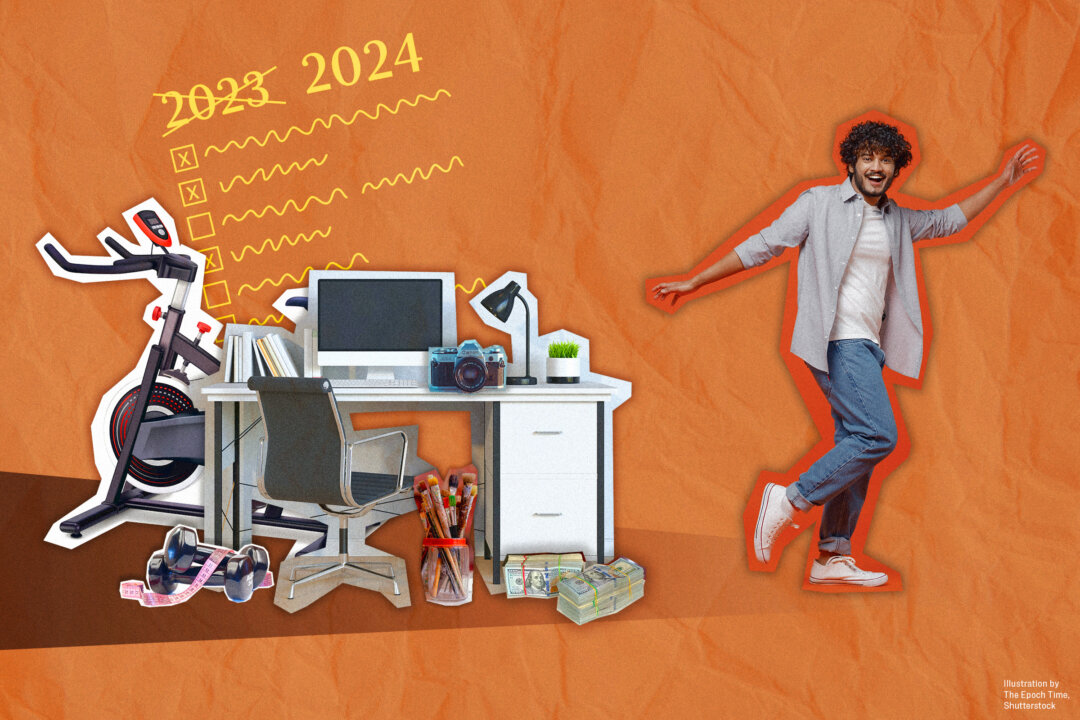"New year" means "new soul."
That's what British writer G.K. Chesterton once observed.
Many of us, though, already feel like we've soiled our souls with botched New Year's resolutions.
And the rest of us will feel pretty soiled soon if statistics are any indication. The average New Year’s resolution lasts only 3.74 months, according to a recent poll by Forbes Health/OnePoll.
Only 6 percent of us will make it through the entire year.
The Problem Isn't Us: It's Our Resolutions
If Chesterton was right, perhaps we need to make New Year's resolutions that improve our souls instead of resolutions that improve our thighs, finances, and cardio.
It's winter.
Stillness. Quiet. Rest. Those are winter words.
Our New Year's resolutions tend to be filled with words like "vigor," "energy," and "activity."
It's no wonder we fail, says health writer Emma Suttie. "Winter," she says, "is a time to rest and recharge—a natural ending of the seasonal life cycle—a time to reflect on ourselves and the year that has passed."
Try Winter Resolutions Instead
Suttie counsels people to avoid active resolutions and, instead, try more passive resolutions. She suggests eight:
Sleep on Impulse Purchases
Impulse purchases kill household finances.
They're also the result of a desire for a dopamine hit, which is something we ought to avoid during these winter months.
Instead of making impulse purchases, Suttie advises people to wait a day or two. "Once the dopamine surge of an impending reward wears off," she says, "and a calmer mind prevails, you'll likely find it much easier to avoid unnecessary purchasing."
Slow Down on Social Media
Social media is digital crack cocaine.
“Platforms like Facebook, Snapchat, and Instagram leverage the very same neural circuitry used by slot machines and cocaine to keep us using their products as much as possible,” notes an article by researchers at Harvard University.
Social media also substitutes for real human relationships, and that's very troubling. Social connectedness is the number one leading indicator for happiness. “[H]appiness," said sociologist and bestselling author Robert Putnam, "is best predicted by the breadth and depth of one’s social connections.”
Human relationships are also the number one indicator of good health, resulting in lower rates of colds, heart attacks, strokes, cancer, depression, and premature death of all sorts.
Stop Comparing Yourself to Others
Neuroscientist Iain McGilchrist has amassed an enormous amount of historical, literary, philosophical, and neuroscientific evidence that modern culture is frenzied and hectic because the left hemispheres of our brains are out of control.
All of Suttie's recommendations quell the left hemisphere, especially this one.
Our left hemisphere is designed to preserve our bodies. As a result, it is predatory (finds food) and protective (eliminates threats to our survival). These are great things, but they make the left hemisphere, says McGilchrist, "essentially competitive." The result: the left hemisphere inclines us to compare ourselves with others.
Current studies consistently show this is a path of misery. Someone always has more or has it better. Comparisons bring discontent, which leads to sadness.
"Instead," says Suttie, "focus on yourself and all the beautiful things in your life. Write them down, and spend some time thinking about them every day. This small act can make significant changes in your perspective and help you appreciate the goodness in your life—and attract more of it."












